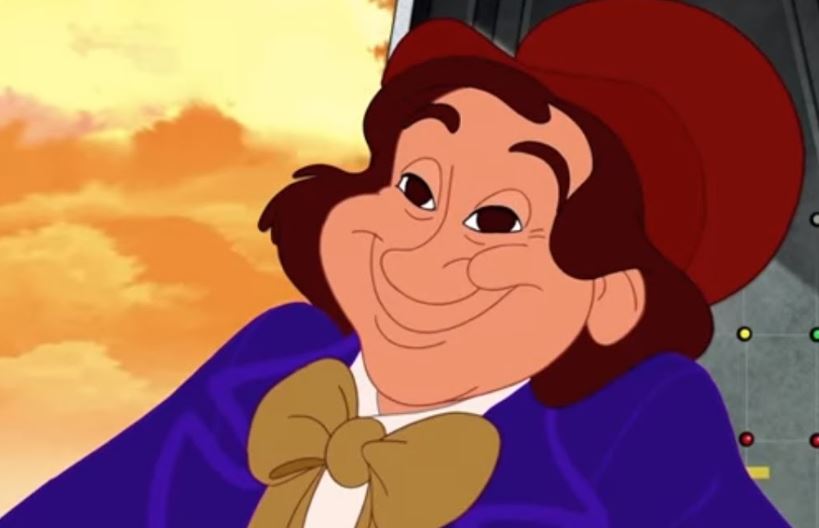It's not just you; this is a bizarre decision to me. Celebrimbor is on a younger level of the House of Finwë's family tree than Galadriel. Even accounting for the fact that Fëanor was the eldest, and his grandson might plausibly be comparable in age to the youngest child of his youngest sibling, it's bizarre for Celebrimbor to look so much older than Galadriel. Especially when his character is so tied up in living in the shadow of greater—and older—craftsmen of the First Age, from his grandfather to Enerdhil, making him the oldest-looking Elf we've seen so far makes no sense to me. Obviously, Amazon does not have the rights to Enerdhil, but surely what we learn of Celebrimbor's history in
Unfinished Tales can still indirectly inform his characterization in the show.
Frelga wrote: ↑Tue Jun 07, 2022 4:40 pmCould they have? I was under the impression that they don't have those rights.
I also agree with Al. We'll see.
Until the estate allows making Children of Túrin and the Lúthien saga, any new adaptation is going to be a glorified fanfiction. So I am not pressed about this one.
You are almost certainly correct about
Aldarion and Erendis being off limits. We don't know precisely what, or how much, non-
LOTR material the Estate will let Amazon include, but I'd be surprised if they give up the main characters of a major narrative in an informal arrangement. Thanks for pointing this out; I really shouldn't post on forums before eating breakfast.

That said, I do maintain that Amazon could have focused on just one or two eras of the Second Age and come up with something that lets them stick closer to the text without sacrificing artistic merit. But I also think that unfaithfulness does not preclude an adaptation being good on its own merits, so we will indeed see.

Voronwë the Faithful wrote: ↑Tue Jun 07, 2022 5:17 pmLet's see what one commentator has to say about that:
J.R.R. Tolkien wrote:I am doubtful myself about the undertaking. Part of the attraction of The L.R. is, I think, due to the glimpses of a large history in the background : an attraction like that of viewing far off an unvisited island, or seeing the towers of a distant city gleaming in a sunlit mist. To go there is to destroy the magic, unless new unattainable vistas are again revealed. Also many of the older legends are purely 'mythological', and nearly all are grim and tragic: a long account of the disasters that destroyed the beauty of the Ancient World, from the darkening of Valinor to the Downfall of Númenor and the flight of Elendil. And there are no hobbits.
While we love
The Silmarillion, there is no question that it is less beloved in the general public then LOTR or TH, and that the lack of hobbits is one (but by no means the only) reason. I've been on record as saying that I would have preferred that they not be included in the show, but I do understand why they are. It remains to be seen just how intrusive they will be onto the real story that should be told. Can I picture a way that it could be done effectively? Yes. Do I expect to be pleased with it? That remains to be seen, but probably not.
I agree there are many reasons
The Silmarillion failed to find as large an audience as
TH and
LOTR, and I think the some of the most important ones are that it's not a novel, we get precious little insight into any of the characters as people, and most of the character-centric narratives don't begin until the second half of the book, following the Dagor Bragollach. I would rank the absence of Hobbits relatively low on the list. The evolution and—though I admit this is a questionable word choice—maturation of the high fantasy genre since Tolkien wrote that letter in 1963 demonstrates, in my view, that there
is a considerable audience for "grim and tragic" stories. And while the trope of the naïve rube protagonist has proved enduring (from Bilbo to Sam to Luke Skywalker to Belgarion to Rand al'Thor and beyond; Frodo himself doesn't fit the trope neatly since he's worldly by Hobbit standards from the get-go), I think
A Song of Ice and Fire and
Game of Thrones (among other examples) proved you can create accessible protagonists, considered relatable by mass audiences, while bucking the Hobbit model. For that matter, Peter Jackson helped demonstrate this by making Aragorn the co-protagonist of the movie trilogy.
I understand the line of thinking that having a "traditional Tolkien little guy" is necessary, but I'm unconvinced that
ROP is taking this approach because it's necessary for this kind of story to find an audience, as opposed to wanting to keep things "on brand" and in line with prior installments in the franchise. As a Second Age fangirl, I dislike that approach, but on the other hand I can't blame people (not thinking of anyone in this thread) who primarily enjoy
LOTR if they appreciate the show going in this direction.




